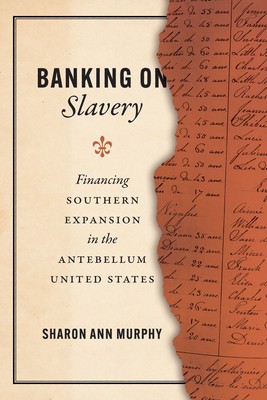
- We will send in 10–14 business days.
- Author: Sharon Ann Murphy
- Publisher: University of Chicago Press
- ISBN-10: 0226825132
- ISBN-13: 9780226825137
- Format: 15.2 x 22.6 x 2.6 cm, softcover
- Language: English
- SAVE -10% with code: EXTRA
Reviews
Description
A sobering excavation of how deeply nineteenth-century American banks were entwined with the institution of slavery. It's now widely understood that the fullest expression of nineteenth-century American capitalism was found in the structures of chattel slavery. It's also understood that almost every other institution and aspect of life then was at least entangled with--and often profited from--slavery's perpetuation. Yet as Sharon Ann Murphy shows in her powerful and unprecedented book, the centrality of enslaved labor to banking in the antebellum United States is far greater than previously thought. Banking on Slavery sheds light on precisely how the financial relationships between banks and slaveholders worked across the nineteenth-century South. Murphy argues that the rapid spread of slavery in the South during the 1820s and '30s depended significantly upon southern banks' willingness to financialize enslaved lives, with the use of enslaved individuals as loan collateral proving central to these financial relationships. She makes clear how southern banks were ready--and, in some cases, even eager--to alter time-honored banking practices to meet the needs of slaveholders. In the end, many of these banks sacrificed themselves in their efforts to stabilize the slave economy. Murphy also details how banks and slaveholders transformed enslaved lives from physical bodies into abstract capital assets. Her book provides an essential examination of how our nation's financial history is more intimately intertwined with the dehumanizing institution of slavery than scholars have previously thought.EXTRA 10 % discount with code: EXTRA
The promotion ends in 16d.02:01:35
The discount code is valid when purchasing from 10 €. Discounts do not stack.
- Author: Sharon Ann Murphy
- Publisher: University of Chicago Press
- ISBN-10: 0226825132
- ISBN-13: 9780226825137
- Format: 15.2 x 22.6 x 2.6 cm, softcover
- Language: English English


Reviews